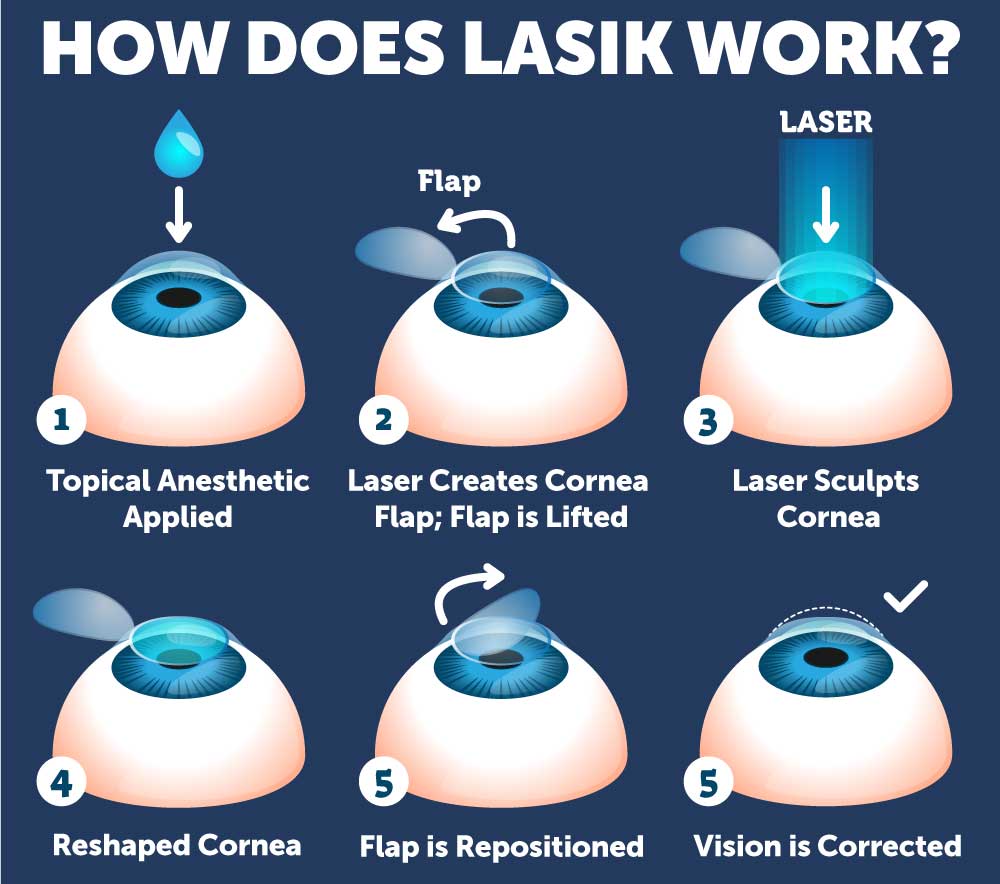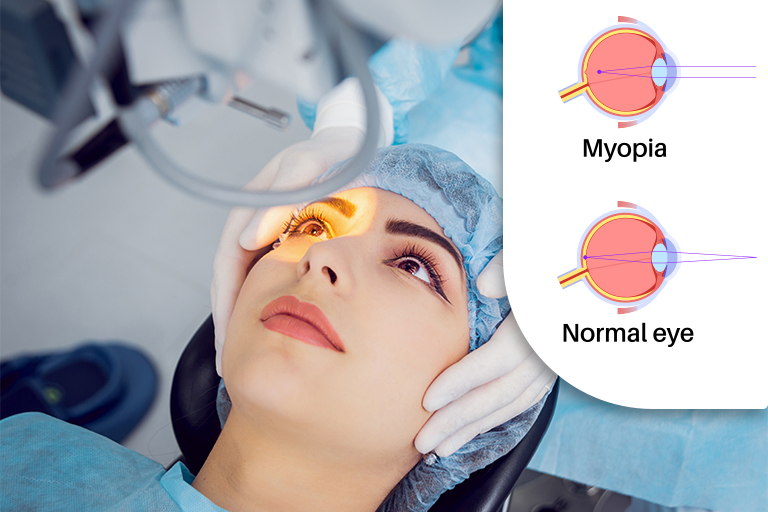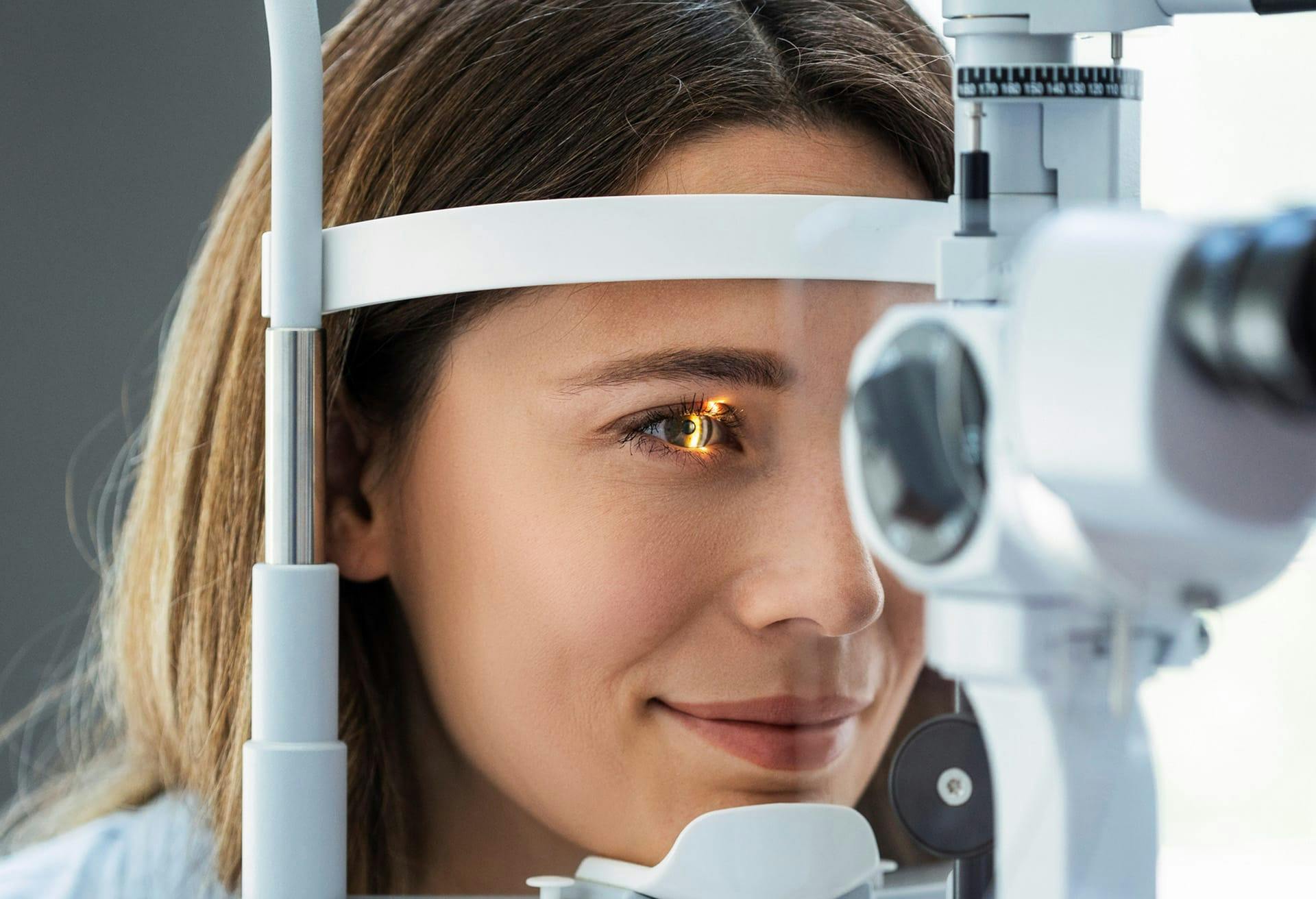When Do You Need Laser Eye Surgery?
Laser eye surgery is a minimally invasive procedure that uses laser technology to cut, reshape, or remove eye tissue. Compared to traditional surgery, laser procedures may reduce the risk of complications and shorten recovery time.
Apart from vision correction, laser surgery is also used to treat other eye conditions, including:
- Cataracts
- Glaucoma
- Diabetic retinopathy
- Eye tumors
For vision correction, laser surgery can treat:

Common Types of Laser Eye Surgery
Laser eye surgery primarily focuses on correcting vision problems. The most common types of laser procedures include:
- LASIK : This involves creating a thin flap on the cornea using a laser, reshaping the cornea with another laser, and then repositioning the flap without stitches.
- SMILE: A small incision is made in the cornea, through which the surgeon removes a lens-shaped piece of tissue to reshape the cornea.
- Surface Laser Treatments (PRK, LASEK, TransPRK): The top layer of corneal cells is removed before reshaping the cornea with a laser. Over time, this outer layer regenerates naturally.
How Long Does LASIK Last?
In theory, laser vision correction is a permanent procedure. However, as you age, your eyes may naturally change, potentially affecting your vision.
Research shows that about 94% of patients do not require glasses or contact lenses even five years after surgery. However, around 10% of patients may need additional procedures for optimal results.

Who Should Not Have Laser Eye Surgery?
Laser eye surgery is not suitable for everyone. Certain conditions may make a person ineligible, including:
- Severe irregular astigmatism
- Participation in contact sports
- Frequently changing vision prescriptions
- Autoimmune diseases or conditions that hinder healing
- Diabetes with reduced corneal sensitivity
Other conditions that may disqualify a person include:
- Blepharitis
- Large pupils
- Herpes simplex or herpes zoster in the eye
- Angle-closure glaucoma
- Ocular hypertension
- Previous eye injuries or surgeries
- Keratoconus
- Thin corneas
- Chronic dry eyes
How Does Laser Eye Surgery Work?
Before the procedure, your doctor will assess your eye health, take precise measurements, and provide pre-surgery instructions. On the day of the surgery, wear comfortable clothing and arrange for someone to drive you home. Laser vision correction typically takes around 30 minutes per eye.
Here’s what to expect during the procedure:
- Numbing eye drops are applied to your eyes.
- An eyelid holder and suction device keep your eye steady and prevent blinking, which may feel like pressure on your eyelid. Your vision will be dim or black.
- The surgeon creates a thin flap in the cornea using a laser and lifts it.
- You will be asked to focus on a target light while another laser reshapes your cornea based on pre-measured data. You may hear clicking sounds.
- Once reshaping is complete, the surgeon repositions the corneal flap, completing the procedure.

Potential Complications of Laser Eye Surgery
Like any surgery, laser eye procedures come with risks. Possible side effects and complications include:
- Dry eyes
- Gritty sensation
- Eye redness
- Vision disturbances such as glare or halos
- Eye pain
- Light sensitivity
- Infection
Severe vision loss or blindness is extremely rare.
Recovery After Laser Eye Surgery
After the procedure, your surgeon may provide a transparent shield or protective covering to prevent accidental injury and discourage rubbing. Post-surgery discomfort, itching, burning, or mild pain is common. Pain relievers may be recommended.
It is best to rest at home and avoid rubbing your eyes. Your doctor will give specific guidelines on when you can drive and return to daily activities. Most people can resume normal activities within 1 to 3 days. Follow-up exams will be scheduled to monitor your recovery.
How Much Does Laser Eye Surgery Cost?
The cost of laser eye surgery depends on location, the surgeon’s expertise, and the type of procedure. LASIK surgery typically ranges from $1,000 to $2,400 per eye.
While some medical insurance plans cover laser surgery for medical conditions, they usually do not cover elective vision correction procedures such as LASIK . However, many insurance companies offer discounts or savings programs. If you have a Flexible Spending Account (FSA) or Health Savings Account (HSA), you may be able to use these funds to cover part or all of the surgery cost.
Conclusion
Laser eye surgery uses high-energy light beams to remove or reshape eye tissue, improving vision or treating certain medical conditions. While the procedure is generally long-lasting, not everyone is a suitable candidate. Additionally, vision may still change over time. Before making a decision, consult with a qualified surgeon to determine if laser eye surgery is right for you.













